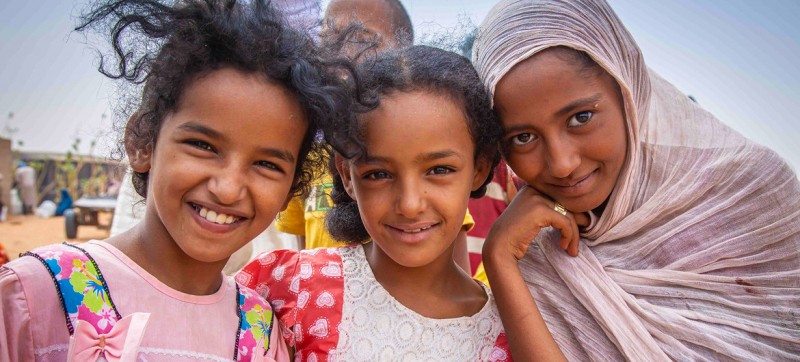A UNICEF poll reports that children and young people remain hopeful and more globally minded compared to older generations. Even in the face of the COVID-19 pandemic, climate change and other global challenges, children and youth are nearly 50 per cent more likely than older people to believe that the world is becoming a better place, according to the results of a landmark intergenerational poll published on Thursday. The international survey was conducted by the UN Children’s Fund (UNICEF) and Gallup, the global analytics and advice firm, and has been released ahead of World Children’s Day on 20 November. The Changing Childhood Project is the first poll of its kind to ask multiple generations for their views on the world and what it is like to be a child today. Henrietta Fore, the UNICEF Executive Director, said that despite numerous reasons to be pessimistic, children and young people refuse to see the world through the bleak lens of adults. “Compared to older generations, the world’s young people remain hopeful, much more globally minded, and determined to make the world a better place,” she added. “Today’s young people have concerns for the future but see themselves as part of the solution”. More than 21,000 people in 21 countries participated in the survey, which was conducted across two age cohorts – 15-24 years old, and age 40 and up – and during the COVID-19 pandemic. Nationally representative surveys were undertaken in countries across all regions – Africa, Asia, Europe, and North and South America – and income levels. The findings revealed young people are also more likely to believe childhood has improved, and that healthcare, education and physical safety are better today when compared with their parents’ generation. However, despite their optimism, youth are far from naïve. The poll showed they want to see action to address the climate emergency. At the same time, they are skeptical about the information they consume on social media, and struggle with feelings of depression and anxiety. This generation is also more likely to see themselves as global citizens, and they are more willing to embrace international cooperation to combat threats such as the pandemic. Young climate activists take part in demonstrations at the COP26 Climate Conference in Glasgow, Scotland. The survey also found children and young people are generally more trusting of national governments, scientists and international news media as sources of accurate information. They are also aware of the problems the world is facing, with nearly 80 per cent seeing serious risks for children online, such as exposure to violent or sexually explicit content, or being bullied. Young people want faster progress in the fight against discrimination, more cooperation among countries, and for decision-makers to listen to them. Nearly three-quarters of those surveyed who are aware of climate change believe Governments should take significant action to address it. The share rises to 83 per cent in low- and lower-middle countries, where climate impacts are set to be greatest. In practically every country, large majorities of youth said their countries would be safer from COVID-19 and other threats if Governments would work together, rather than on their own. They have also demonstrated stronger support for LGBTQ+ (lesbian, gay, bisexual, transgender and queer) rights, with young women at the forefront for equality. The survey also revealed a strong alignment between the two generations, including on the issues of climate, education, global collaboration, though some of the deepest divides occurred around optimism, global mindedness and recognition of historical progress. “While this research paints a nuanced view of the generational divide, a clear picture emerges: Children and young people embody the spirit of the 21st century far more readily than their parents,” said Ms. Fore. “As UNICEF prepares to mark its 75th anniversary next month, and ahead of World Children’s Day, it is critical we listen to young people directly about their well-being and how their lives are changing”. Part of the solution
Hopeful, not naïve

Aware of risks
21st century citizens
The World Organization for Development has been endowed with consultative status with the UN ECOSOC since 2014. The World Organization for Development, which has consultative status wich the UN ECOSOC, develops and implements Global Initiatives to achieve the UN Sustainable Development Goals.




Comments are closed.